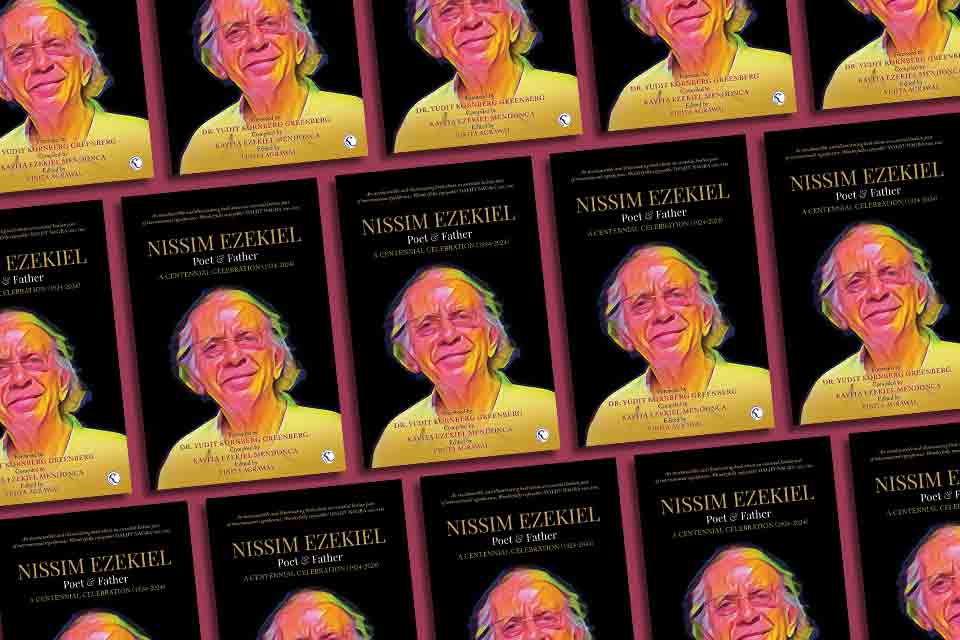Remembering Nissim Ezekiel, Indian-Jewish Author, by Candice Louisa Daquin

A centennial celebration of poet Nissim Ezekiel compiled by his daughter, poet Kavita Ezekiel Mendonca, Nissim Ezekiel, Poet and Father (Pippa Rann Books, 2024) consists of a set of recollections, augmented by vignettes and historic data. Reminding the reader of Nissim’s enchantment and complexity as a poet, editor Vinita Agrawal displays: “A memoir requires perspective and perception as a way to be fantastically portrayed.”
Partly a rebuke to former collections that sought to sensationalize Ezekiel’s life by specializing in his private life and any whiff of scandal somewhat than his poetic legacy in Indian literature, Kavita embraced the mammoth job on his one-hundredth anniversary by reaching out to those that knew him, in hope of garnering an genuine collective voice via interviews.
Many Indian lecturers consider Ezekiel was instrumental in elevating the worldwide profile and appreciation of Indian poetry in English. Changing into identified for his writing within the language of the colonizer, Ezekiel has been quoted as saying he tried to reclaim what was misplaced by colonialism by imbuing the tasteless English language with the vividity, coloration, and cadence that’s acknowledged as Indianness; that linguistic distinction turned valued as a separate kind. In using this technique, he explored the complexities of displacement, identification, and the resilience of humanity via his writing as a Jewish Indian.
Others select to offer themselves
In some distant and backward place
My backward place is the place I’m.
(“Background Casually”)
There are uncommon insights into Ezekiel’s private life; uncommon, given the household’s historic strategy to privateness. As Kavita remembers, “When you come from a damaged household, it’s as when you spend a lifetime accumulating damaged bits of glass and making an attempt to piece them collectively, in an try and kind some type of significant sample.” By this she refers to her father’s selection to depart the household, inflicting social condemnation. These responses to her father, via poetry and prose, compile a tapestry of Ezekiel’s writing-life, alongside his daughter’s want to turn out to be a poet in her personal proper and her understanding of the sacrifices made: “He merely wished to do his life’s work with out the shackles of domesticity. The issues anticipated of him as a household man have been unimaginable for him to do.”
“When you come from a damaged household, it’s as when you spend a lifetime accumulating damaged bits of glass and making an attempt to piece them collectively, in an try and kind some type of significant sample.”—Kavita Ezekiel Mendonca
As Raul Da Gama Rose writes in recollection: “I nonetheless learn Nissim’s work, not merely to take pleasure in his poetry, however typically to discover ways to resolve a thought at risk of overtaking the center of an emotion.” The recollections of his household and contemporaries lend a generational depth to this e-book that’s stark and revealing:
I assumed I heard him recite the poem
I wept, cautious to not erase the traces
His voice mellifluous and poignant
He made me fall in love with poetry.
(“My Father Taught Me Love,” Kavita Ezekiel Mendonca)
Ezekiel’s up to date, one other Indian-Jewish author, Shalva Weil, writes: “At the moment I understand one has to view Nissim in a wider perspective towards the backdrop of the evolving Bombay cultural scene.”
Transferring from focusing solely on Ezekiel, the e-book considers shifts in Indian society with regard to writing poetry in English and the place future Indian/English writers have taken that initiative. Ezekiel’s up to date and pal, Shanta Acharya, remembers: “Like Yeats, he handled poetry because the ‘report of the thoughts’s development,’ which is how I got here to poetry. It was and nonetheless is for me a subversive and solitary exercise as a lot as a approach of reaching out to the world.” The immediacy of those recollections relates the generational affect of writing in English:
Above all, my father beloved us, his kids
Celebrated us in verse and in rhyme
Named me prophetically
So I may write about him.
(“The Many Issues My Father Beloved,” Kevita Ezekial Mendonica)
Kavita’s recounting of her father turned this centenary memoir; it’s an evocative assortment, transcending the boundaries of geographic location and providing a common exploration of the bond between father and daughter in addition to poet and poet.
Grasse, France

0 Comment